#Spiegel Bestseller
Explore tagged Tumblr posts
Text
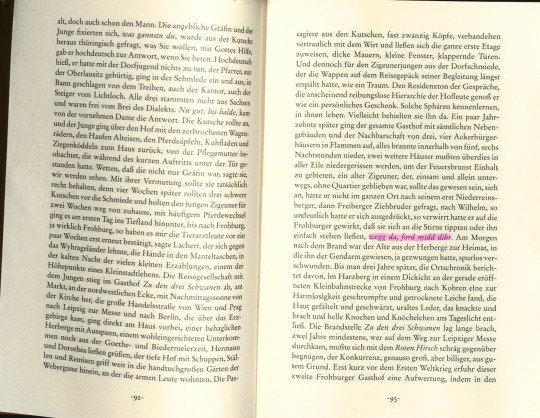

frohburg, guntram vesper 2017
#nida-rümelin#frohburg#roman#guntram vesper#random house#2017#kaltenburg#marcel beyer#freiburg#frohnau#wittenau#oranienburg#sachsenhausen#kinski geisel#dresden#spiegel#bestseller#books
0 notes
Text
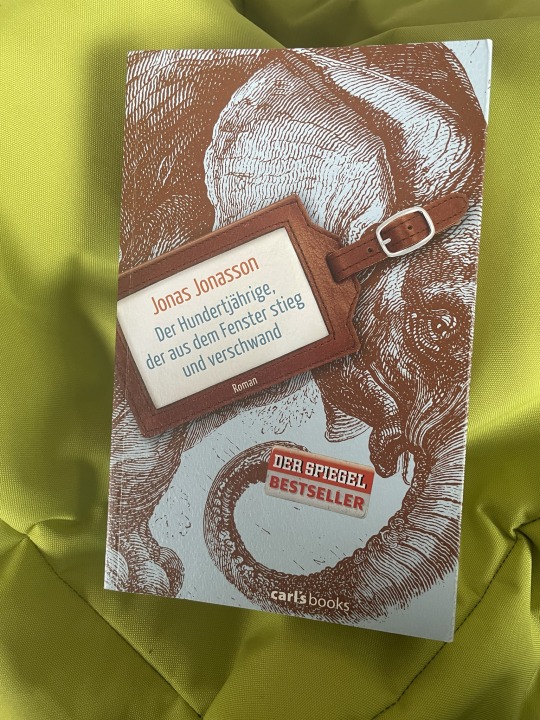
Der Hundertjährige, der aus dem Fenster stieg und verschwand.
0 notes
Text
Die drei ??? - Die Auferstehung
.... von Andreas Eschbach
Yep, richtig gelesen
"Die Auferstehung" - Ein Roman aus der Welt von "Die drei ???"
Erscheint 21.07.2025 | 448 Seiten | € 24,-
Können Tote wieder auferstehen? Eine junge Frau ist vor vielen Jahren nicht mehr aus dem brasilianischen Regenwald zurückgekehrt. Nun taucht sie plötzlich wieder auf. Justus Jonas, Peter Shaw und Bob Andrews kommen - inzwischen erwachsen geworden - auf verschiedenen Wegen mit ihrer Rückkehr in Verbindung und in gewohnt detektivischer Manier ziehen sie ihre Schlüsse. Irgendwann kreuzen sich ihre Wege und die drei Freunde von einst müssen sich mit ihrer Vergangenheit auseinandersetzen. Ein spannender Krimi von SPIEGEL Bestseller-Autor Andreas Eschbach.

18 notes
·
View notes
Text
The Sept. 1 elections in the two eastern German states of Saxony and Thuringia have hit Germany like a cyclone, delivering the strongest-ever turnout for an extreme right-wing party in the postwar era. In Saxony, the hard-right Alternative for Germany (AfD) captured 31 percent, landing it narrowly behind the Christian Democrats (CDU), and in Thuringia, where the AfD is led by a twice-court-fined ideologue and outspoken neo-fascist named Björn Höcke, the party took 33 percent of the vote, the highest of any party, and thus also the mandate to form a government. The new populist party Sahra Wagenknecht Alliance (BSW)—a rightist offshoot of the Left Party that boasts anti-immigration planks and pro-Russian sympathies—landed in third place in both states.
Although it is unlikely that another party will partner up with the AfD in governance—they all say they refuse to do so—the results raise resounding questions for modern Germany. How can such an extreme hard-right party perform so well in postwar Germany, a country that, in both its eastern and western postwar incarnations, made preventing the return of a racist, authoritarian leadership its very raison d’être? Why is this phenomenon so pronounced and radical in the country’s east, the territory of former communist East Germany, almost 35 years after the Berlin Wall fell?
Germans are now asking: How could everything go so wrong? Several recently published books by German authors offer a reckoning—and some answers.
Proponents of eastern Germany, including literature scholar Dirk Oschmann and historian Katja Hoyer, authors of recent bestsellers blasting the overbearing West and those taking the West’s side—most of the mainstream media, including the leading weekly news magazine Der Spiegel—are practiced at lobbing rhetorical grenades at one another. On their own, these one-sided arguments miss the mark. But taken together, and combined with new material, they explain how the Germanies’ journey wound up such a wreck.
The cleft between eastern and western Germany—defined by the East’s extreme-right vote and preponderance of street violence, as well as the inability of the republic’s mainstream parties (with the exception of the CDU) to attract eastern members and votes—can be traced to the events following the fall of the Berlin Wall. Today’s hard-right sympathies in the East are largely, though not exclusively, spiteful backlash against the one-sided terms of West Germany’s annexation of the East, the West’s demeaning treatment of the easterners, the indignity that the economic transition inflicted on many eastern Germans, and the legacy of a suffocating, repressive dictatorship on its former subjects and their successor generations.
Detlev Claussen, an emeritus sociologist from Frankfurt, hit the nail on the head: “The AfD is the East’s revenge on the West, which is blamed for all the upheavals after 1990,” he wrote in an email to Foreign Policy. “The party’s personnel are right-wing extremists, the electorate only partly so, although it too appears indifferent to the accusation of Nazism.” Claussen pointed out that populists’ top issues were migration and the Ukraine war, two topics that are not relevant to regional governance. Rather, another topic is almost always predominant behind them, one regularly laced into the rhetoric of both the AfD and BSW: the unfair, demeaning terms of unification and the terms of the transformation since then. “The essence of the far-right vote is resentment against the West,” Claussen wrote.
The AfD vote in the East is complex: The five eastern states aren’t a seething bastion of foaming-at-the-mouth neo-Nazis—although neo-Nazis are among them. German studies show that about 8 percent of Germans—on both sides of the country—firmly subscribe to hard-right, racist ideological worldviews with a large additional segment in a gray zone that might well sometimes—but not always—support the likes of a right-wing dictatorship, street violence against politicos, racist laws, and antisemitism, too.
The numbers aren’t that much different than in other European countries, though they are in Germany currently higher than at any time since the Nazi era, particularly among young people, and also higher in eastern Germany than western Germany. About half of AfD supporters in the East—roughly 15 percent of the voting population—are rightists hardcore enough to actually lionize—rather than just accept—Höcke, who employs thinly veiled neo-Nazi language, soft-pedals Germany’s World War II crimes, and wants to “remigrate” non-native Germans living in Germany to their origin countries.
This radical segment is extremely alarming and constitutes a menace for people of color, LGBTQ+ individuals, Muslims, and leftist groupings, among others. They are the types who either perpetrate or condone far-right hate crimes, which have been on the rise for several years. Germany’s security services counted 25,660 such incidents in 2023. That’s an average of 70 a day Germany-wide and 22 percent more than in 2022. In May, a candidate for the Social Democrats was attacked and badly injured in Dresden, capital of Saxony, when pasting up EU election campaign posters. Experts say that this kind of violence hasn’t been so vicious since the 1990s, tagged today as “the baseball-bat years,” when pogrom-like attacks were carried out in the eastern states against migrants and others.
The 1990s is a good place to start to understand right-wing extremism in the East. The easterners had emerged from beneath the heavy hand of Soviet communism and were pleased to be rid of it, as well as welcoming to political and economic systems—liberal democracy and market capitalism—that they knew very little about. They were also unaware of how thoroughly the decades of authoritarian, militaristic education and indoctrination had penetrated their psyches and habits. East German communism was ethnically homogeneous and nothing if not narrow-minded; the very few non-Germans living in East Germany, such as African or Asian guest workers, reported regular abuse. When the wall fell, West German rightists—a generation before Höcke, who himself was born and raised in northwestern Germany—poured into the East to tap this raw energy and organize. When the easterners were confronted with refugee hostels in their communities in the 1990s, they often reacted with anger—and baseball bats.
One explanation of the racist violence and voting patterns today in the East lies in the 1949 to 1990 German Democratic Republic, and the values passed on from generation to generation. The young people today voting AfD and belonging to neo-Nazi street gangs are the children and grandchildren—or come from the same communities—of the bat swingers of the 1990s.
Today’s AfD hotspots are much the same as the sites of the 1990s’ violence. Over the years, one study after another has shown higher levels of racism and intolerance in the East, which the years of transformation have not diluted as the West’s implanted democracy teachers—university deans, politicos, foundation heads, CEOs, school principals, police chiefs—had intended and expected.
But the AfD phenomenon is more layered, since this explanation alone, broadly speaking, pertains to only about half of the constituency and very little of the BSW. It doesn’t explain how over three decades this ugly radicalism could fester and then suddenly explode again into the open. The East’s takeover by the West may have been sanctioned by the easterners in the democratic elections held in 1990—they voted for the CDU and Chancellor Helmut Kohl, who turbocharged the unification process, completing it in just 11 months after the fall of the Berlin Wall—but the pain and sacrifice of the economic transition ran deep and left scars that still smart today, even though eastern per-capita GDP has climbed over the years, today being about 80 percent of its western counterpart, with unemployment at just under 7 percent.
The disappointment and hurt of the easterners should not be underestimated. Kohl had promised them “flourishing landscapes,” but what they received was rampant unemployment: Three million people who had jobs lost them—and were thrown onto welfare rolls, which into the early 2000s equaled half of the East’s GDP. In the low-income labor market, the news was worse: Over 50 percent found themselves jobless. Those who could, including many young people, fled to the West, like the engineer who held the lease on my apartment in Berlin on Friedrichstrasse: He landed a job with BASF in Ludwigshafen in western Germany and never returned. The easterners were incensed at the deals that the Treuhandanstalt—the government agency that sold off East Germany’s enterprises—made for a song. The overnight introduction of the Deutsche mark in 1990 and the Treuhand’s fire sale ensured that western German firms and western German owners would sop up all of the eastern German business—and use the region for a supply of cheap, dispensable labor (which explains the lower per-capita GDP today).
The ostensibly burning topics of migration and the Ukraine war are largely red herrings, concluded sociologist Steffen Mau, author of a widely read new book on the East-West divide, entitled Ungleich Vereint: Warum der Osten Anders Bleibt (Unequally United: Why the East Remains Different). The eastern states have by far the smallest fraction of foreign nationals among the federal states, and those communities with the lowest numbers in the East tended to vote disproportionately higher for the AfD (which also scored well in depopulated rural areas, places with fewer women, fewer medical services, and higher unemployment). They are not threatened by the Ukraine war and have nothing to gain from admiring Russian President Vladimir Putin. The EU, which the AfD lambasts for milking Germany dry, has contributed immensely to the eastern states’ development since unification, to the tune of $53 billion (€48 billion). The German state shelled out nearly $2 trillion (€1.75 trillion).
Mau, in his nicely balanced study, concluded: “The economic transformation of the 1990s, which was associated with major restructurings and brought with it not only freedom but also economic declassification and insecurity, has made people [in the East] less willing to undergo further changes. Having already had to fundamentally change their lives and abandon biographical fixtures, larger sections of the population now strongly resist further impositions, be it growing diversity or socio-ecological transformation.”
None of this, of course, explains why such broad swaths of the population cast their ballot either for a party that tracks closely with neo-Nazis or another that looks to Russia for inspiration and not Brussels. This, though, is the hardest, most in-your-face way to strike back at the system that delivered them such disrespect and injury—and then blamed their backwardness for the mess.
“German democracy possesses its legitimation through its radical break with National Socialism,” Claussen wrote. “The election results in Saxony and Thuringia throw this foundation into question.” It’s a swipe that Germany’s mainstream elites aren’t going to shake off quickly.
19 notes
·
View notes
Text
Falls Sie das Gefühl beschleicht, Stresemann kämpfe mit denselben Problemen wie wir heute, dann liegt das daran, dass er mit denselben Problemen kämpfte wie wir heute. Stresemann fragt die Abgeordneten im Reichstag, »ob sie wirklich mit sehenden Augen das Volk in den Abgrund führen wollen«. [...] Es folgt ein Ratschlag, den Stresemann tatsächlich 1929 so aussprach: »Ich sehe nur, dass wir mit der Linken gehen müssen, weil Teile von rechts in Deutschland verrückt geworden sind.«
Ruch, Philipp. Es ist 5 vor 1933: Was die AfD vorhat – und wie wir sie stoppen - SPIEGEL Bestseller (German Edition) (p. 12). Ludwig Buchverlag. Kindle Edition.
#book quotes#quotes#zitat#buch zitat#es ist 5 vor 1933#zentrum für politische schönheit#philipp ruch#fck afd
3 notes
·
View notes
Text

chrikra23: 🟧 Spiegel Bestseller Platz 1 🟧 - ich weiß nicht ob man das an dieser Stelle so sagt, aber irgendwie hört es sich richtig an - it's a wrap - 😜 Freue mich 10/10 ���💛
4 notes
·
View notes
Text
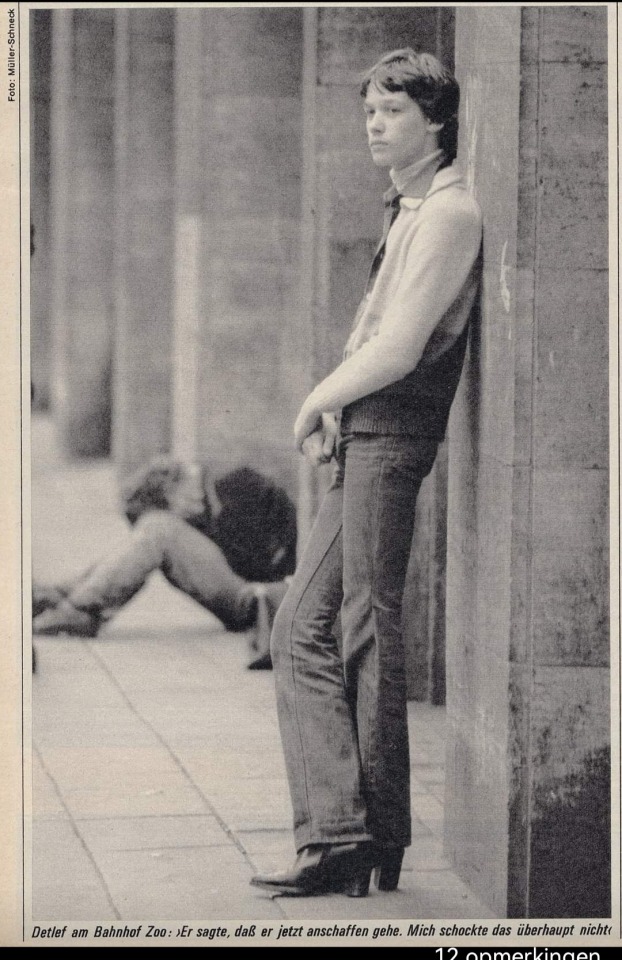



In 1987 (I was 14 years old,yes I'm that old now 🙄)I had to read the book "Christiane F, Wir Kinder vom Bahnhof Zoo " wich in Dutch is called "Christiane F,Verslag van een junkie".It wasn't a school assignment it was my mother who made me read the book.In the small Dutch town where I grew up my mother was (amongst other things) a drugs counsellor and she thought it was a good idea for me to read the book.
Yeah ,the story is shocking and all that but why does no-one ever mentions the people who literally got thrown in front of the bus so to speak and I'm talking about Detlef R.,Stella, and everyone else who gets mentioned but doesn't have their name on the book cover and/or title page.
To be honest I've never liked Christiane F. she seems a bit self centred to me and over the years after a (horrible) second book and watching interviews she comes across as a very shallow person who based her whole being on being a drug addict.
For me, Detlef was the real hero of the book, the fact that he was the only person with two pictures in the Dutch edition of the book drew my attention towards him. I mentioned before that my mother was a drugs counsellor and I've met many boys who were in the same position as Detlef with the difference that the life they tried to get away from didn't get documented in a world wide bestseller, a blockbuster movie and a television series.But in a small town where most people know each other maybe there isn't much difference. And I admired each and every one of them the same way I admire Detlef.
My admiration for Detlef grew years later when I saw a documentary in wich he,Stella,Frank H and some others shared their side/views on the story.Detlef gave a very matter of factly view on everything without hiding the underneath sadness,shame and anger.
Stella in the same documentary broke my heart ,and Frank seemed like a very nice bloke.
But some people feel different and are actually angry with Detlef for telling the truth, namely that as far as he was concerned what he and Christiane had was more based on their dependency on drugs and really had nothing to do with love.
Has anyone ever noticed the degrading way Christiane speaks about Stella in the book?It really doesn't make any sense,she calls Stella ugly while the picture of the stunning girl in the book speaks otherwise.
The documentary from the mid 1990s can be found on YouTube
There's also an interview from the early 1980s with Detlef and Frank
See al the links below.
About the pictures the black and white one is from a report of Stern from 1978(?) The other three are screenshots from the documentary.
If I'm informed correctly, Stella and Frank are both dead, but Detlef is still alive.
I did post this to pay attention to the unsung heroes of this immensely tragic story.
youtube
youtube
youtube
6 notes
·
View notes
Text
„Warte nicht länger, dass dir das Glück in den Schoß fällt. Du alleine hast in der Hand, wie sehr dein Leben voll Freude ist.“
- Zitat aus dem Buch „Gib dir die Liebe, die du verdienst“ von Katharina Tempel ( Spiegel Bestseller)
5 notes
·
View notes
Note
What qualifies someone as a bestselling author? Which lists "count"? Obviously NYT is the big one, then USA Today. But what other lists mean you can properly call yourself a bestselling author if you're on them? Does being #1 in a category on Amazon count? The bestselling book at your local store? A little bestseller banner for a short time on the B&N website?
I guess 'bestselling' CAN mean anything, but generally speaking, if you are using that as a bragging point, you'd want to specify. NYT Bestselling, USA Today Bestselling, PW Bestselling, Indie Bestselling (ie, appearing on the Indie Bookstore Bestseller List) -- those things mean something. In the UK, Sunday Times means something. In Germany, Der Spiegel means something. (If you appeared on multiple big lists like that in multiple countries, you could say "Internationally Bestselling.")
If you were to just say "bestselling" without a specification, that's kinda dubious. Whaddya mean by "bestselling"? Bestselling at your grandma's retirement home? That doesn't count.
Also, having a banner on B&N or a yellow thing on Amazon, or being "#1 > books > children's books > sports > pickle ball " or whatever doesn't really count. Those "rankings" fluctuate by the hour -- if somebody places a big order for your book at 5:15, that might make it a "bestseller" in that niche of a niche category for a while, maybe even a long while until a different pickle ball book sells -- and that's exciting and fun! -- but that doesn't indicate sustained good sales. Whereas if to get on the NYT or Indie or PW or USA Today lists, you'd have to have good sales all week, against EVERY book in the children's category, not just against every pickleball book or every sports book.
6 notes
·
View notes
Text

Kochen für kleine und große Champions moved up one place in the Spiegel cookbook bestseller list 🥳🥳
3 notes
·
View notes
Text
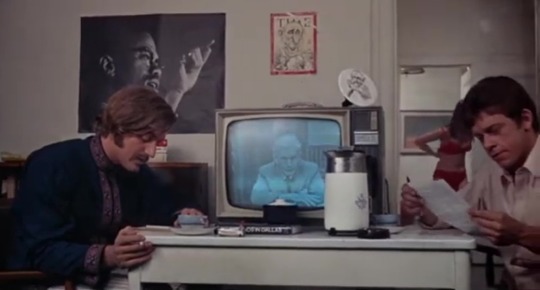
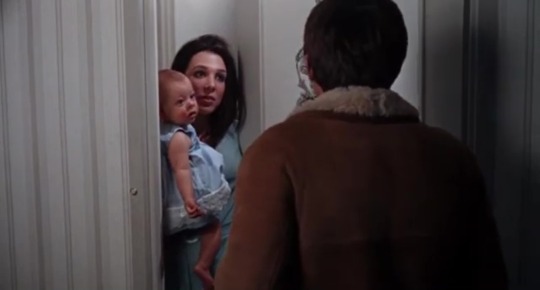
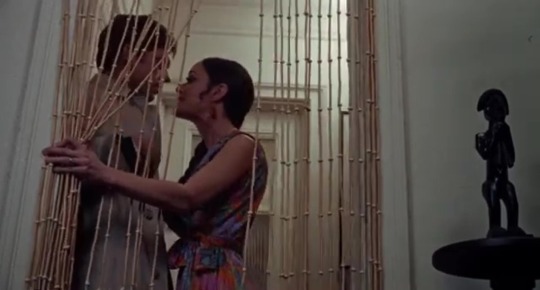
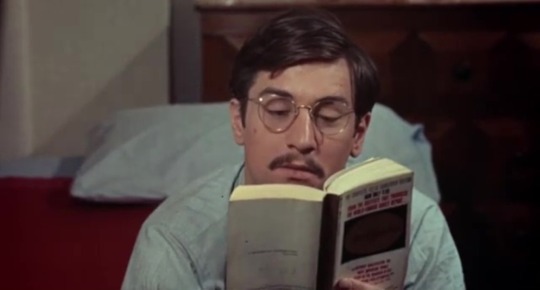
greetings, brian de palma 1968
#greetings#brian de palma#1968#robert de niro#about cinema#elvira madigan#in cold blood#a dandy in aspic#deux ou trois choses que je sais d'elle#rosemary's baby#jfk#material#buw#nsu#heimatschutz#stefan aust#spiegel#bestseller#deep fake#computer dates
1 note
·
View note
Text
Hier ist eine Liste der bekanntesten Paulo Coelho-Bücher in deutscher Sprache, geordnet nach Erscheinungsdatum (nicht vollständig!):
1. „Der Alchimist“ (1988)
📚 „Der Alchimist“ ist das bekannteste Werk von Coelho und ein weltweiter Bestseller. Es erzählt die Geschichte des Santiago, eines andalusischen Hirten, der auf einer Reise nach Ägypten geht, um einen „persönlichen Schatz“ zu finden und dabei wichtige Lektionen über Träume, Schicksal und Selbstverwirklichung lernt.
2. „Brida“ (1990)
📚 In diesem Buch geht es um Brida, eine junge Frau, die auf der Suche nach spirituellem Wissen und magischen Kräften ist. Sie trifft einen Magier und eine weise Frau, die sie auf ihrer Reise zur Selbstverwirklichung begleiten.
3. „Der Pilger des Lichts“ (1999)
📚 In diesem Werk geht es um einen spirituellen Pilger, der auf der Suche nach innerer Erleuchtung und Selbstverwirklichung ist. Coelho reflektiert hier über Glauben, Hoffnung und das Streben nach dem wahren Selbst.
4. „Veronika beschließt zu sterben“ (1998)
📚 Der Roman erzählt die Geschichte von Veronika, einer jungen Frau, die versucht, sich das Leben zu nehmen, aber in einer psychiatrischen Klinik landet und dort den Sinn des Lebens neu entdeckt.
5. „Der Zahir“ (2005)
📚 In diesem Buch geht es um einen erfolgreichen Autor, dessen Frau Alma verschwindet. Der Roman folgt seiner Reise, um die Bedeutung der Liebe und die Herausforderungen von Besitz und Freiheit zu verstehen.
6. „Elf Minuten“ (2003)
📚 „Elf Minuten“ erzählt die Geschichte von Maria, einer jungen Frau aus Brasilien, die nach Genf geht und dort als Prostituierte arbeitet. Sie lernt, ihre eigene Definition von Liebe, Sexualität und Selbstverwirklichung zu finden.
7. „Die Hexe von Portobello“ (2006)
📚 In diesem Werk geht es um Athena, eine Frau, die sich in einer spirituellen Bewegung verliert und dabei die wahre Bedeutung von Selbstfindung und Identität entdeckt. Es ist eine Geschichte über Glaube, Magie und die Suche nach sich selbst.
8. „Aleph“ (2011)
📚 In „Aleph“ begibt sich Coelho auf eine spirituelle Reise und reflektiert über seine Vergangenheit und seine Fehler. Er beschreibt seine Begegnung mit einem Zug durch Russland und die tiefere Verbindung zu anderen Menschen und zu sich selbst.
9. „Manuel de la Fuente“ (2022)
📚 Ein weiteres Werk von Coelho, das sich mit den tiefen Fragen des Lebens, Wandel und Veränderung befasst. In seinem Werk geht es um den inneren Konflikt und die Verborgenen Wahrheiten in Beziehungen.
Diese Liste umfasst einige seiner bekanntesten Werke, die in deutscher Sprache erhältlich sind. Jedes Buch von Paulo Coelho ist ein Spiegel seiner tiefgründigen philosophischen Themen wie Selbstfindung, Glauben, Liebe und spirituelles Wachstum.
©️®️CWG, 26.02.2025
0 notes
Text
Bundestagswahl 2025: Ist es möglich, das System abzuwählen? (Matthias Langwasser) - sehr wissenswert
📨 Hol dir ein kostenloses Kapitel aus meinem SPIEGEL-Bestseller „Reise in die Freiheit“ und lass dich inspirieren: https://mein.regenbogenkreis.de/leseprobe-reiseindiefreiheit 🌍 Erlebe den Regenbogenkreis-Shop: Entdecke nachhaltige, hochwertige Produkte für deine Gesundheit und unseren Planeten: https://www.regenbogenkreis.de/?utm_medium=social&utm_source=youtube&utm_campaign=shop 🌿 Hol dir 11 %…
#Abwanderung#Aufarbeitung erforderlich#auswandern #Bewusstsein#Das System ist kaputt#Deutschland schafft sich ab#einfach schön#Freiheit#Gesundheit#Glückseligkeit#Jahrhundertlügen#Lügen haben kurze Beine#Lebensenergie#Leitmedien#Liebe#Macht#Politik#Qualitätsmedien#Rezession#Schluss mit ÖRR#Selbstbewusstsein#USA#Wahrheit kommt immer ans Licht#Weltgeschehen
0 notes
Text
Reinhold Beckmann liest
Reinhold Beckmann liest aus "Aenne und ihre Brüder - Die Geschichte meiner Mutter " Lingen (Ems), Theater an der Wilhelmshöhe, Donnerstag, 06. Februar, 20:00 Uhr
Reinhold Beckmann liest aus Aenne und ihre Brüder Die Geschichte meiner Mutter Lingen (Ems), Theater an der Wilhelmshöhe, Willy-Brandt-Ring 44 Donnerstag, 06. Februar 20:00 Uhr Karten 23 / 25 EUR, erm. die Hälfte Reinhold Beckmann erzählt und liest aus seinem tief berührenden Buch. Sein Spiegel-Bestseller über das Leben seiner Mutter Aenne ist ein Mahnmal gegen das Vergessen, gerade jetzt, da…

View On WordPress
0 notes
Text
Der bayerische Innenminister Karl Stützel allein tut gegen die NSDAP mehr als alle Politiker der Bundesrepublik gegen die AfD zusammen. [...] Nach Stützels Überzeugung ist »die NSDAP staatsfeindlich«. Sie will »nicht nur die Regierungen, sondern den gegenwärtigen Staat beseitigen«.
Ruch, Philipp. Es ist 5 vor 1933: Was die AfD vorhat – und wie wir sie stoppen - SPIEGEL Bestseller (German Edition) (p. 13). Ludwig Buchverlag. Kindle Edition.
#book quotes#quotes#zitat#buch zitat#es ist 5 vor 1933#philipp ruch#zentrum für politische schönheit
0 notes